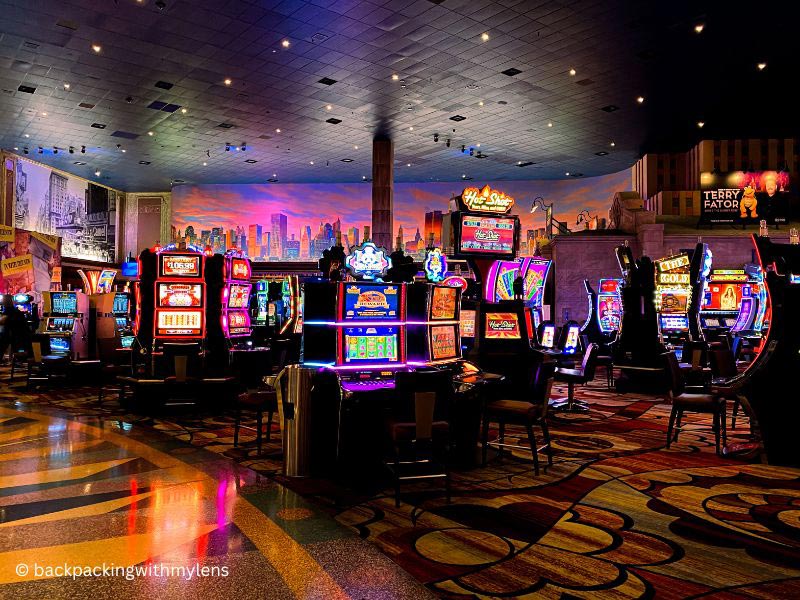
In the world of gambling, in which chance and strategy meet, a unique tapestry of beliefs unfolds—one that intertwines luck, fate, and the enigmatic nature of casino games. Casinos, bustling with excitement and anticipation, are not just places for placing bets; they are also arenas where superstitions thrive. Ranging from the novice player to the seasoned gambler, these mysterious practices often shape how individuals approach the games they play, holding the belief that their actions can affect the outcome in ways that go beyond mere probability.
As players gather around roulette wheels, blackjack tables, and slot machines, the atmosphere is thick with stories of lucky charms, rituals, and codified behavior that defy logic yet provide a sense of comfort. Whether it’s wearing a specific outfit, following a particular sequence of bets, or even avoiding certain numbers, the attachment to various superstitions reflects a deep-rooted desire to manipulate the uncontrollable. This article delves into the captivating world of casino game superstitions, investigating the beliefs that both entertain and mystify those who dare to play.
Historical Origins of Superstitions
Gambling activities have long been entwined with an variety of superstitions that trace to early cultures. The beginnings of these beliefs can be associated to humanity’s fundamental need to influence the uncertain outcomes related with luck and uncertainty. In ancient civilizations, activities of uncertainty were often linked to spiritual practices. Gamblers would call upon favor or seek favor from spirits, believing that their actions could affect the odds in their advantage. This basis laid the groundwork for the variety of superstitions that developed as gambling evolved over time.
During the Middle Ages, gambling became a widespread activity across Europe, and with it, a rich tapestry of superstitions emerged. Participants adopted various rituals and charms, believing they could influence the results of games. The value of numbers, in particular, emerged to show in superstitions related to card games and dice. The number 7 was often considered favorable, while different numbers carried bad connotations. These ideas mirrored the social contexts of the time, changing as they transferred through generations and adapted to emerging gaming environments.
As gambling houses emerged in the seventeenth century, particularly in Italy and France, the atmosphere surrounding betting became saturated in mystery. The growing accessibility of gambling games allowed for the spread and variation of superstitions among players. Concepts like fortunate charms, special seating locations, and rituals gained importance, creating a distinct culture within betting houses. As these traditions continued to thrive, they became integral to the essence of gambling activities, illustrating how the past and culture shape the belief systems that influence how participants interact with chance.
Common Casino Myths
Superstitions surrounding gambling activities are abundant and diverse, reflecting the hopes and fears of players as they engage in chance-based games. One of the most common beliefs is that specific numbers bring fortune or misfortune. For example, the digit 7 is often seen as a lucky digit, frequently sought after by players looking for a positive outcome. Conversely, the number thirteen is routinely considered cursed, leading many gamblers to steer clear of it during their gambling periods.
A frequent superstition relates to practices that gamblers believe can affect their odds. Whether blowing gently on the dice before a roll, using a particular hand to place a wager, or even putting on particular items of attire, many individuals feel that these actions can tilt fate in their benefit. These practices offer a feeling of control in an otherwise random environment, strengthening the idea that fortune can be created through individual beliefs and customs.
Finally, the ambiance and vibe of the gambling house itself adds to myths. Many gamblers suggest that the presence of certain symbols, such as four-leaved clovers or lucky coins, can enhance their odds of success. Additionally, players might adhere to the notion that victory streaks can be interrupted by mundane events, such as a person passing by or a accident at the table. The shared environment in a gambling house can amplify these beliefs, creating a shared culture of myths that goes beyond single experiences.
Impact of Superstitions on Players
Superstitions play a important role in the psychology of casino players, often affecting their behavior and decision-making. A lot of gamblers believe that luck can be influenced through different rituals, such as wearing a lucky charm, selecting specific colors, or avoiding certain numbers. BK8 This reliance on superstitions can create a sense of authority in an environment that is intrinsically unpredictable. Players frequently feel more self-assured and involved when they think that their actions could sway the result of a game in their favor.
The influence of these superstitions extends beyond singular players, affecting the general atmosphere inside the casino. For instance, a player who believes in the luck of a certain slot machine might draw a crowd, as others are intrigued by their apparent success. This shared belief can heighten excitement and create a dynamic environment, leading to an captivating experience even for those who may not necessarily be superstitious. The excitement around certain games can lead to increased participation and longer playing sessions, supporting the casino’s vibrant social scene.
In some cases, superstitions can lead to detrimental effects for players. Relying too much on rituals can result in poor gambling decisions, as some may ignore basic strategies in favor of baseless beliefs. Additionally, the pressure to perform rituals may heighten anxiety and stress levels, detracting from the enjoyment of the experience. Ultimately, while superstitions can enhance the excitement of playing casino games, they can also lead to poor choices that overshadow the fun and entertainment intended in the casino experience.
